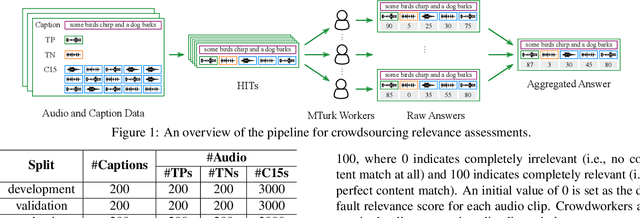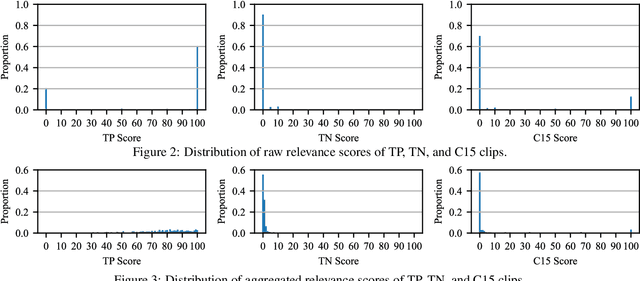Crowdsourcing and Evaluating Text-Based Audio Retrieval Relevances
Paper and Code
Jun 16, 2023



This paper explores grading text-based audio retrieval relevances with crowdsourcing assessments. Given a free-form text (e.g., a caption) as a query, crowdworkers are asked to grade audio clips using numeric scores (between 0 and 100) to indicate their judgements of how much the sound content of an audio clip matches the text, where 0 indicates no content match at all and 100 indicates perfect content match. We integrate the crowdsourced relevances into training and evaluating text-based audio retrieval systems, and evaluate the effect of using them together with binary relevances from audio captioning. Conventionally, these binary relevances are defined by captioning-based audio-caption pairs, where being positive indicates that the caption describes the paired audio, and being negative applies to all other pairs. Experimental results indicate that there is no clear benefit from incorporating crowdsourced relevances alongside binary relevances when the crowdsourced relevances are binarized for contrastive learning. Conversely, the results suggest that using only binary relevances defined by captioning-based audio-caption pairs is sufficient for contrastive learning.
 Add to Chrome
Add to Chrome Add to Firefox
Add to Firefox Add to Edge
Add to Edge